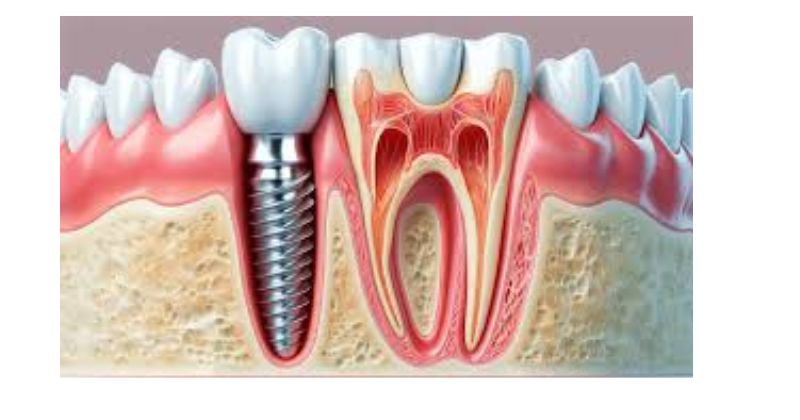Evolution of Dental Implants: A Modern Solution to Missing Teeth
Dental implants provide a smart and durable alternative for missing teeth, which has completely changed the world of dentistry. From ancient civilizations to the present day the concept of replacing teeth has evolved significantly with dental implants emerging as the pinnacle of innovation and efficacy. Restore your smile with affordable dental implants near me. Find out how experienced dentists use advanced techniques to provide high-quality, long-lasting implants at a price you can feel good about. Schedule a consultation today and reclaim your confidence. This article explores the historical context of technological advancements benefits and considerations of modern dental implants as a solution for missing teeth.
Historical Context
The history of dental implants dates back thousands of years with evidence of early attempts found in ancient civilizations such as the Egyptians and Mayans. These early implants were rudimentary and typically made from materials like shells stones and metals. However, it wasn’t until the 20th century that significant advancements in materials and techniques paved the way for modern dental implants.
Technological Advancements
The development of dental implants as we know them today began in the 1950s and 1960s with researchers and clinicians experimenting with materials like titanium due to its biocompatibility and ability to integrate with bone tissue. Swedish orthopedic surgeon PerIngvar Brånemark is credited with pioneering modern implantology after discovering osseointegration—the process by which titanium implants fuse with the jawbone—while studying bone healing and regeneration.
Since then advancements in materials science imaging technology and surgical techniques have transformed dental implantology. Computeraided design and manufacturing (CAD/CAM) allow for precise planning and customization of implant restorations. Threedimensional imaging technologies such as cone beam computed tomography (CBCT) provide detailed views of the jawbone structure aiding in accurate implant placement through guided surgery techniques.
Benefits of Modern Dental Implants
Modern dental implants offer numerous advantages over traditional tooth replacement options such as dentures and bridges:
-
Longevity and Durability: Dental implants are meant to be a long-term fix. With proper care and maintenance they can last a lifetime making them a cost effective choice in the long run.
-
Natural Appearance and Function: Implants look and feel like natural teeth. They provide stability and support to adjacent teeth and prevent bone loss which can occur with other replacement options.
-
Improved Oral Health: Unlike dental bridges which require adjacent teeth to be altered implants preserve neighboring teeth by not relying on them for support.
-
Enhanced Comfort: Implants eliminate the discomfort and inconvenience of removable dentures allowing for easier eating speaking and smiling confidently.
-
Bone Health: Osseointegration promotes bone growth and stability preventing bone loss in the jaw a common issue after tooth extraction.
Considerations for Dental Implants
While dental implants offer significant benefits several factors should be considered before undergoing treatment:
-
Health and Bone Density: Good overall health and sufficient jawbone density are essential for successful implant placement. In cases where bone density is insufficient bone grafting procedures may be necessary to support the implant.
-
Cost: Dental implants are an investment in long term oral health. While they may have a higher initial cost compared to dentures or bridges their durability and longevity often justify the expense. Many dental insurance plans now cover part of the cost of implants making them more accessible.
-
Treatment Timeline: The process of receiving dental implants typically involves multiple stages including consultation implant placement osseointegration and placement of the final restoration. The overall timeline can vary depending on individual healing and treatment needs.
-
Maintenance: Regular oral hygiene practices including brushing flossing and professional dental cleanings are crucial for maintaining the health and longevity of dental implants. Your dentist will provide specific instructions on caring for your implants to ensure optimal results.
Future Directions
Looking ahead ongoing research in biomaterials nanotechnology and digital dentistry continues to drive innovation in implantology. Advances in 3D printing technology may allow for the creation of patientspecific implants tailored to individual anatomical variations. Furthermore smart implants embedded with sensors could enable realtime monitoring of oral health metrics offering personalized care and early detection of potential issues.
Conclusion
Dental implants have evolved into a sophisticated and reliable solution for replacing missing teeth combining ancient principles with modern technology and materials. Their durability natural appearance and functional benefits make them a preferred choice for patients seeking a permanent and comfortable alternative to traditional tooth replacement options. By understanding the evolution benefits and considerations associated with modern dental implants individuals can make informed decisions about their oral health and quality of life.
Read More ( Click Here )



